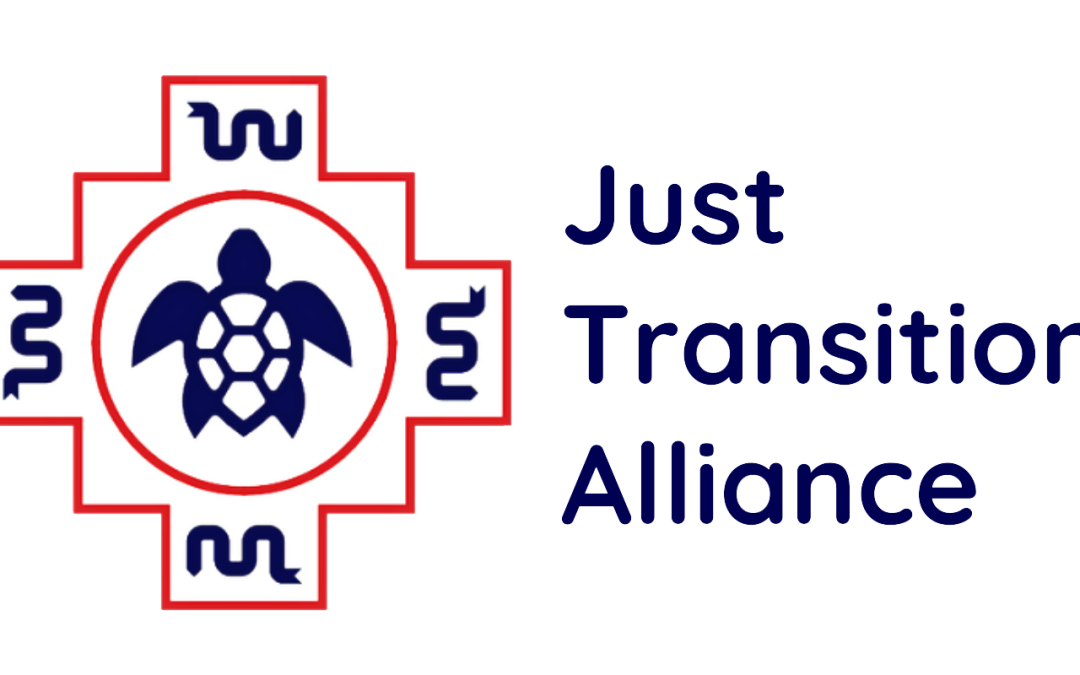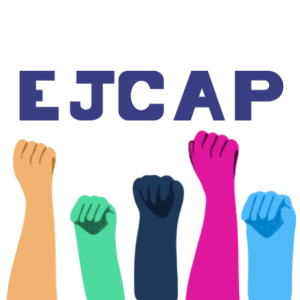By Ananda Lee Tan of The Just Transition Alliance
The Just Transition Alliance attended the Global Plastics Treaty (GPT) negotiations in Ottawa in April 2024, as part of the EJ Communities Against Plastics coalition. Along with over 180 members of a larger global NGO coalition, we spent the bulk of our time speaking with delegates about the importance of producing a binding treaty that should:
- Include strong targets for reducing pollution across the entire life-cycle of plastics production, consumption and waste
- Include strong targets for ending the production of primary plastics polymers (the building blocks of all plastics products) and the most toxic of plastics products
- Contain just transition safeguards and guidelines for supporting workers and communities most harmed by plastics, and the transition away from plastics production.
- End subsidies for false solutions such as chemical recycling, plastics pollution trading and other corporate techno fixes and market-based schemes.

Members of EJCAP delegation. Photo credit: Mithzy Hernandez, PSR-LA
We spent the balance of our time building deeper alignment with allied EJ groups, Indigenous Peoples groups and Waste Worker organizations, supporting their side events and co-authoring interventions to advance robust just transition language for the treaty. Following up on a discussion with the International Alliance of Waste Pickers and the Indigenous Peoples’ Caucus at INC-3 in Nairobi, we organized a strategy meeting for members of the Indigenous Caucus, EJ groups and waste worker unions such as the IAWP and the Teamsters Waste & Recycling division – to build relational trust and alignment with each other before the start of INC-4. At this meeting, we learned about the various ways different communities and workers are impacted by the plastics-petrochemical industrial complex, as well as the spectrum of demands these frontline groups were bringing to the treaty talks. This critical discussion allowed us to do a deeper dive into a few thematic areas that mainstream NGOs often do not address, such as how the global plastics crisis is rooted in a colonial extractive economy, and how the thought leadership of Indigenous peoples, EJ communities, and waste workers continues to be sidelined, tokenized and marginalized at these UN conferences.

Indigenous Peoples, EJ community groups, waste worker unions and allies craft a joint statement on Just Transition. Photo credit: International Alliance of Waste Pickers
While we were in Ottawa, the Aamjiwnaang First Nations declared a state of emergency following a benzene leak at the INEOS Styrolution plant in Sarnia that produces styrene for various plastics products. Benzene is a dangerous carcinogen, and neither the company nor the Canadian health authorities warned this Indigenous community of the leak that the Aamjiwnaang band council discovered through its own air quality monitoring system. The Sarnia region is often referred to as Canada’s “Chemical Valley,” due to the high concentration of oil, gas and petrochemical industries located in the region. As a result of these industries, the Aamjiwnaang community is exposed to 30 times as much benzene as residents of Ottawa or Toronto. Representatives of Aamjiwnaang and allied First Nations held an action and press event during INC-4, to call out the Canadian government’s duplicity in failing to protect the health of frontline communities from toxic plastics industries, while hosting the GPT talks. Following the GPT talks, the Ontario provincial government suspended approval of the INEOS factory’s environmental compliance approval.

Aamjiwnaang First Nations activists hold protest outside INC-4 conference hall. Photo credit: Ananda Lee Tan
Not surprisingly, INC-4 witnessed a massive presence of corporate lobbyists representing the plastics-petrochemical industrial complex, such as members of the American Chemistry Council. This lobby came out in full force, deploying large billboards and other greenwash advertising across Canada’s capital. They even went as far as exploiting a number of unemployed poor in Ottawa, paying people to walk around with carefully crafted messages touting the various ways in which plastics have become ubiquitous across consumer society. In contrast to the number of Indigenous and EJ community leaders who had traveled from afar to provide critical testimony on the serious health impacts being suffered in their communities, these greenwashing efforts were a direct affront to our demands for a healthy and just future.

Plastics industry billboards trying to convince the public that plastics are essential to life. Photo credit: Ananda Lee Tan
Our old friend Pam Miller, Director of Alaska Communities Against Toxics and Co-chair of the International Pollution Elimination Network, stated: “Plastics and their associated chemicals threaten the health, lands, and cultures of Arctic Indigenous Peoples. Delegates should listen to the voices of those from the Arctic and other areas that are most affected by toxic plastics, not to the industries that profit from plastics. The industry should be held accountable for the costs of the plastics crisis, rather than having an undue influence over the development of solutions.”
By the end of INC-4, it was evident this corporate influence had succeeded at swaying the UN treaty negotiations to avoid concrete measures on the reduction of plastics production, and committing instead to discussing market-based mechanisms such as Extended Producer Responsibility (EPR) and plastics pollution credits at intersessional meetings in the lead up to INC-5. While a growing number of member states, especially from the global south, have started asking for concrete plastics reduction targets, these UN talks remain a long way from a majority position that would provide confidence in a strong outcome at INC-5 in South Korea. As we have observed before, the only way we can ensure a binding and effective plastics treaty as an outcome is if frontline communities and workers from across the death-cycle of the plastics industrial complex, start showing up in much greater force at these UN treaty talks, holding UN member states accountable as only frontline power can.

Greenpeace activists drop banner from bridge across from INC-4 conference hall. Photo credit: Ananda Lee Tan


